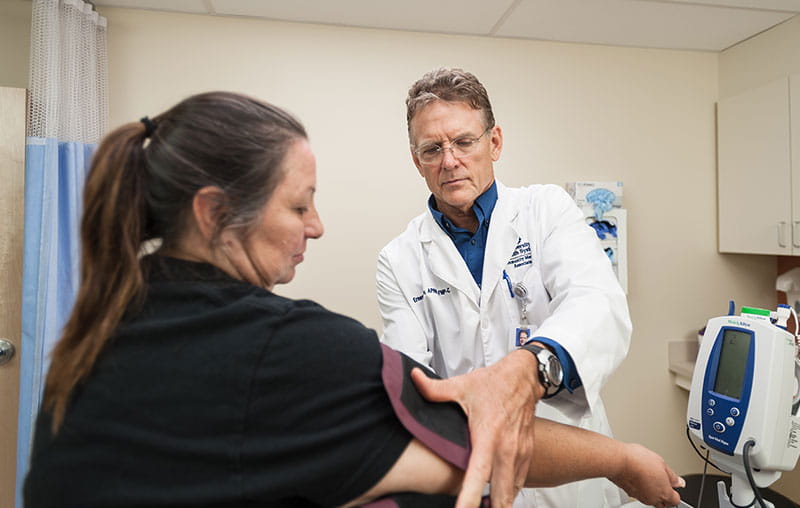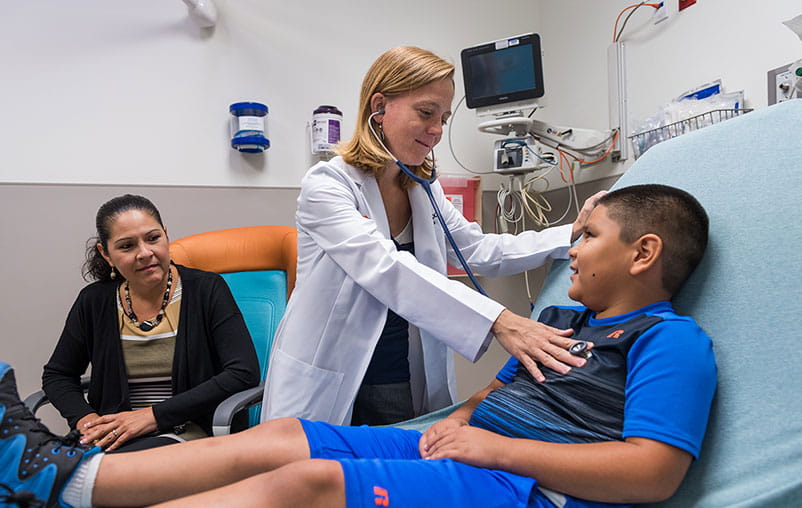Pregnancy and childbirth are an exciting time for most women. However, like any medical condition it can also be a cause for anxiety. This can be especially true for women who decide to have a vaginal birth after a cesarean delivery (C-section). Though there are risks associated with a C-section and subsequent pregnancies, usually there is little cause for concern, especially if the mother and baby receive proper medical care.
Dr. Patrick Ramsey, Professor and Director of Maternal Transport and Outreach at UT Health San Antonio/University Health explains, “Having a vaginal delivery after a cesarean delivery is an option for many women who have had one before. It is important to ask the questions and to be informed if you are considering this option. Your provider can help guide you through this decision making.”
The risks of a C-section
A cesarean delivery is a surgical procedure used to deliver a baby through incisions in the abdomen and uterus. If there are complications early in the pregnancy, sometimes a C-section might be planned in advance. However, there are also times when an emergency C-section may need to be performed on the day of delivery if unforeseen complications arise.
Common reasons a mother may need a C-section include:
- The baby or mother are in duress.
- There’s a problem with the placenta, such as placenta previa.
- The baby is positioned abnormally in the uterus.
- The labor doesn’t progress as it should.
- The mother is carrying multiples.
Because a C-section is major surgery, it can carry some risks for both the baby and mother. Some of these risks include:
- The mother may develop endometritis, an inflammation of the uterine lining.
- Hemorrhaging could occur.
- The baby is more likely to develop transient tachypnea, or abnormally fast breathing
- There could be surgical injury to both the mother and baby.
Additionally, there's a greater chance of having problems with the placenta in future pregnancies, such as placenta accreta, where the placenta becomes attached to the uterus. Also, because incisions are made in the uterus, chances of it tearing are higher in subsequent births.
This is more common if you’ve had more than one cesarean delivery or if you have placenta previa. If you have this history, you should be evaluated for a placenta accreta - when the placenta grows too deeply into the uterine wall. This can be a life-threatening complication for the mother during delivery and may cause your baby to be delivered prematurely.
“Our maternal-fetal medicine specialists at University Hospital are skilled at detecting placenta accreta and coordinating care for you if you are diagnosed with this condition. Our goal is to provide the best outcome for you and your baby,” Dr. Ramsey says.
Can I have a vaginal birth after cesarean (VBAC)?
As mentioned above, one of the greatest risks of women who have a vaginal birth after a cesarean, or VBAC, is the chance that the uterus will tear or rupture during delivery. Since there are risks associated with a VBAC, your medical team will ultimately have to make the decision to see if you’re a good candidate for a vaginal birth after a cesarean.
Dr. Ramsey adds, “Our team of OB and MFM specialists here at University Hospital offer the option of VBAC to women who are appropriate candidates.”
Your doctor will have to consider the following to see if you qualify for a vaginal birth:
- There have been no additional uterine surgeries, scars or previous ruptures.
- The hospital is equipped to monitor the labor and perform a cesarean if needed.
- There have been no more than two low transverse cesarean deliveries previously.
- The baby is a normal size and positioned correctly in the uterus (head down).
- There are no other medical problems with the baby or mother to consider.
Ultimately, whether or not you decide to have a VBAC or another cesarean, make sure your medical team knows all of your previous health history. This will ensure that both you and your baby remain healthy and safe during the pregnancy and childbirth.
University Health and our Level IV (highest level) designated maternity center provides the most comprehensive Maternal-Fetal Medicine program (MFM) in South Texas. Our specialists are trained and equipped to give the best care for all of your pregnancy and childbirth needs. For more information about our MFM program, call 210-358-3425.




